
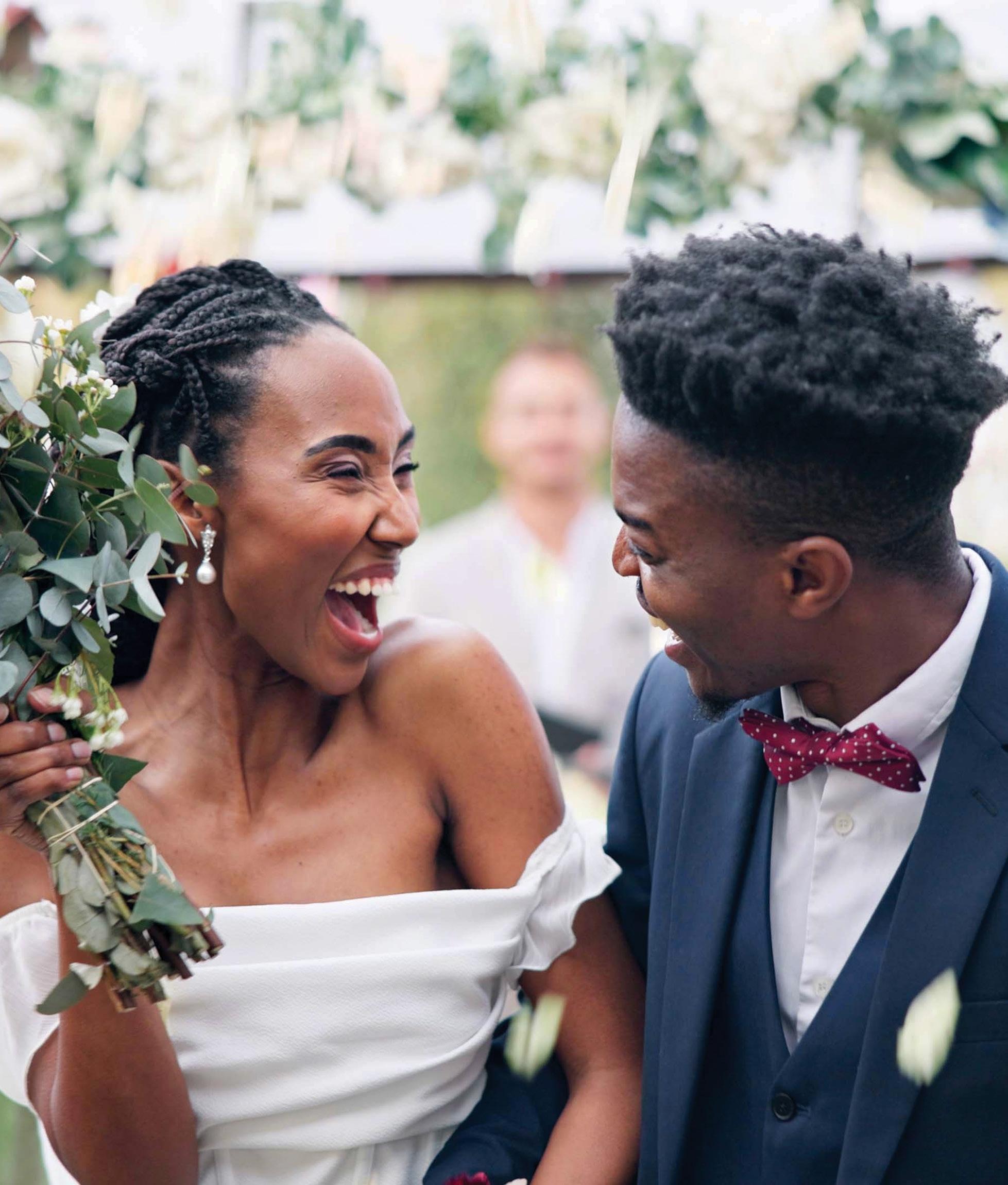



Who doesn’t love a goodie bag? Goodie bags are staples of kids’ parties, and “swag bags” have become the norm at everything from trade shows to town events. Known as “welcome bags” at weddings, these tokens of appreciation help set the tone for the wedding experience and are an extra touch that couples may want to consider.
Welcome bags may be crafted for out-of-town guests or guests who are attending destination weddings. They can be filled with necessities or just a fun mix of items. Either way, they’re great ways for couples to show friends and family they are excited for those who are sharing in the celebration. Here are some ideas for filling welcome bags.
Oftentimes welcome bags are filled with essentials that can help guests in a pinch. Pain relievers, breath mints, sewing kits, stain removers, and similar items are
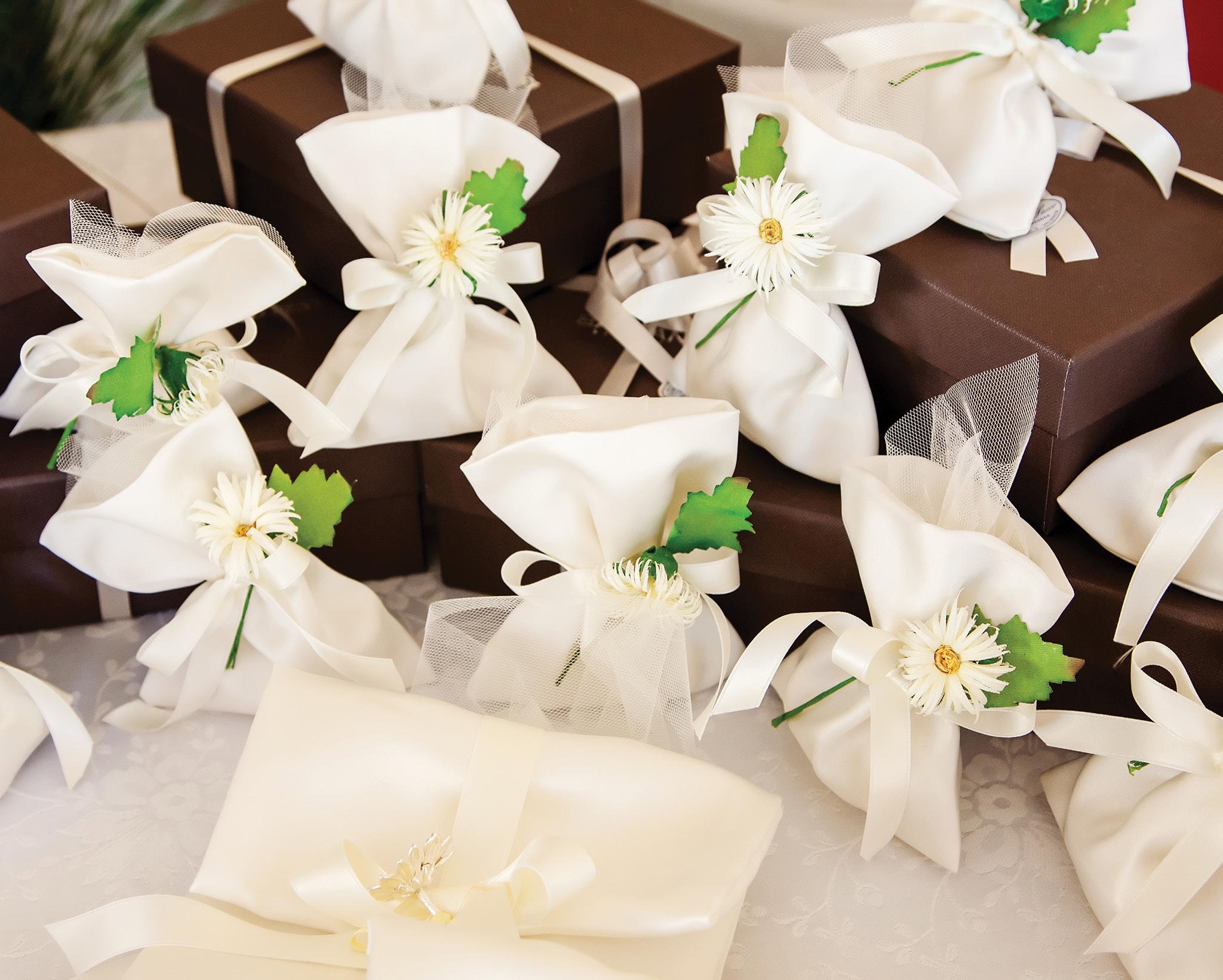
Welcome bags are an added touch that can be helpful for guests.
necessities that will come in handy.
Food can appeal to a wide range of people. By filling up welcome bags with
some bites from local vendors, couples can offer their guests a gift and support local small businesses.
Welcome bags also can include luxury toiletries, creams, bath bombs, or any other product designed to pamper.
If the vast majority of guests are pet lovers, then treats and trinkets for their four-legged friends may be appreciated.
Packaging the ingredients to make a signature drink, perhaps one that will be served at the wedding, is another clever way to fill welcome bags. Use miniatures/ airplane bottles of liquor and pair with small amounts of mixer and garnish.
A welcome bag also can be outfitted with needs for travelers. Earplugs, sleep masks, cozy socks, and travel toothbrush are some essentials that many out-oftowners will appreciate when they check into their hotel later on.
Sometimes the welcome bag alone can be the gift. A decorative or monogrammed canvas bag works as a tote for the beach or a reusable bag for the supermarket.

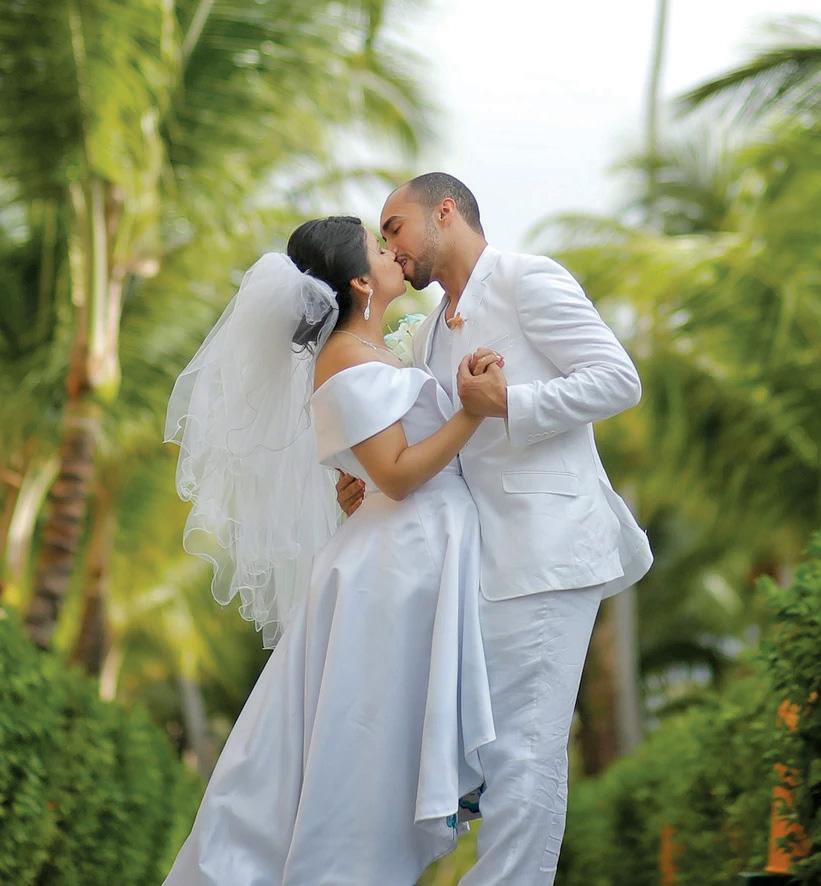
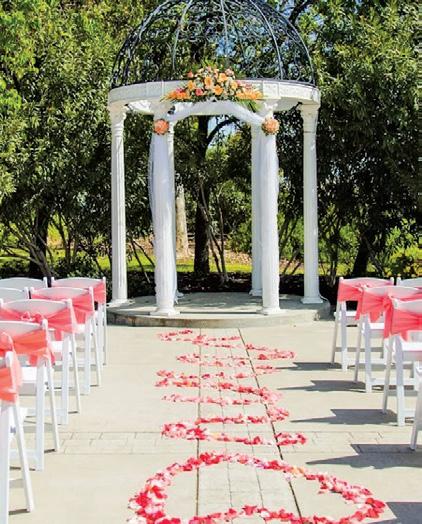
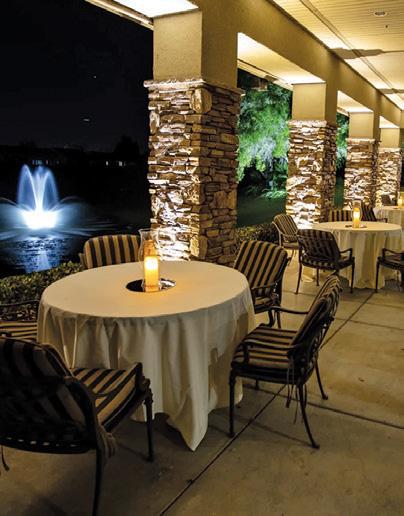

edding receptions are the culmination of a lot of planning. Though there may not be any insignificant decisions when planning the postceremony party, some choices will loom larger than others, including which foods will be served.
When planning a wedding reception, couples can choose a venue that provides the food, such as a traditional reception center; otherwise, the reception may take place at an outdoor location or a venue that is not equipped to prepare and serve food. In the latter instances, couples will hire an outside caterer. In both situations, certain factors can help determine who to use for reception food services.
A traditional reception center/catering hall is likely a wise choice for couples who prefer simplicity in wedding day meal planning. These facilities have experts who take care of all of the components that go
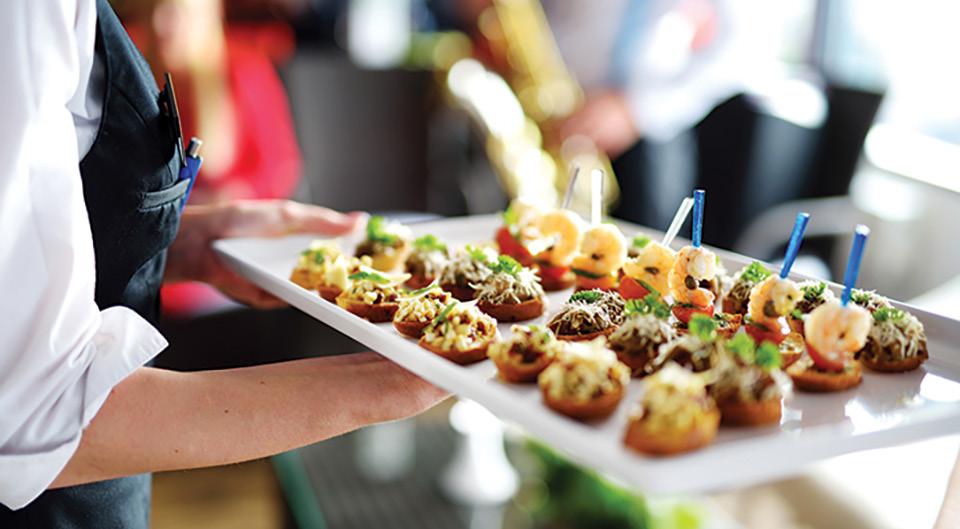
The wedding reception menu is an important variable for engaged couples to consider. A host of factors may come into consideration as couples try to determine how to feed their guests.
into a reception. Such venues offer access to a cocktail area and banquet room, and the facility likely has a staff of chefs at the ready to dish up meals. While many reception centers offer restaurant-quality offerings, scouting venues and sampling dishes will provide an idea of how foods taste and help couples narrow down their choices.
Some receptions are multi-course events starting from the moment guests arrive and snack on hors d’oeuvres to the dessert display served as a final course. Others are low-key and may not have full sit-down service. If you prefer a cocktail atmosphere only, certain venues may make more sense

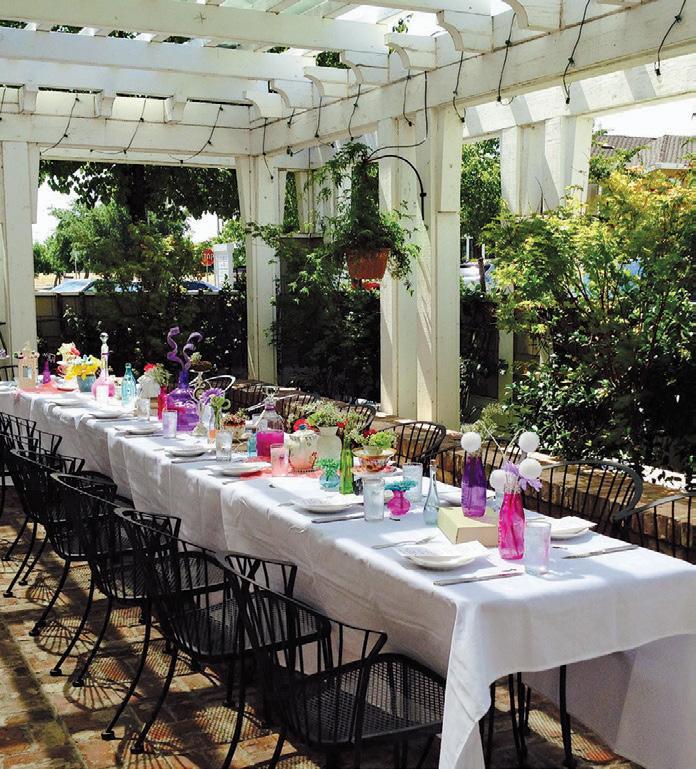


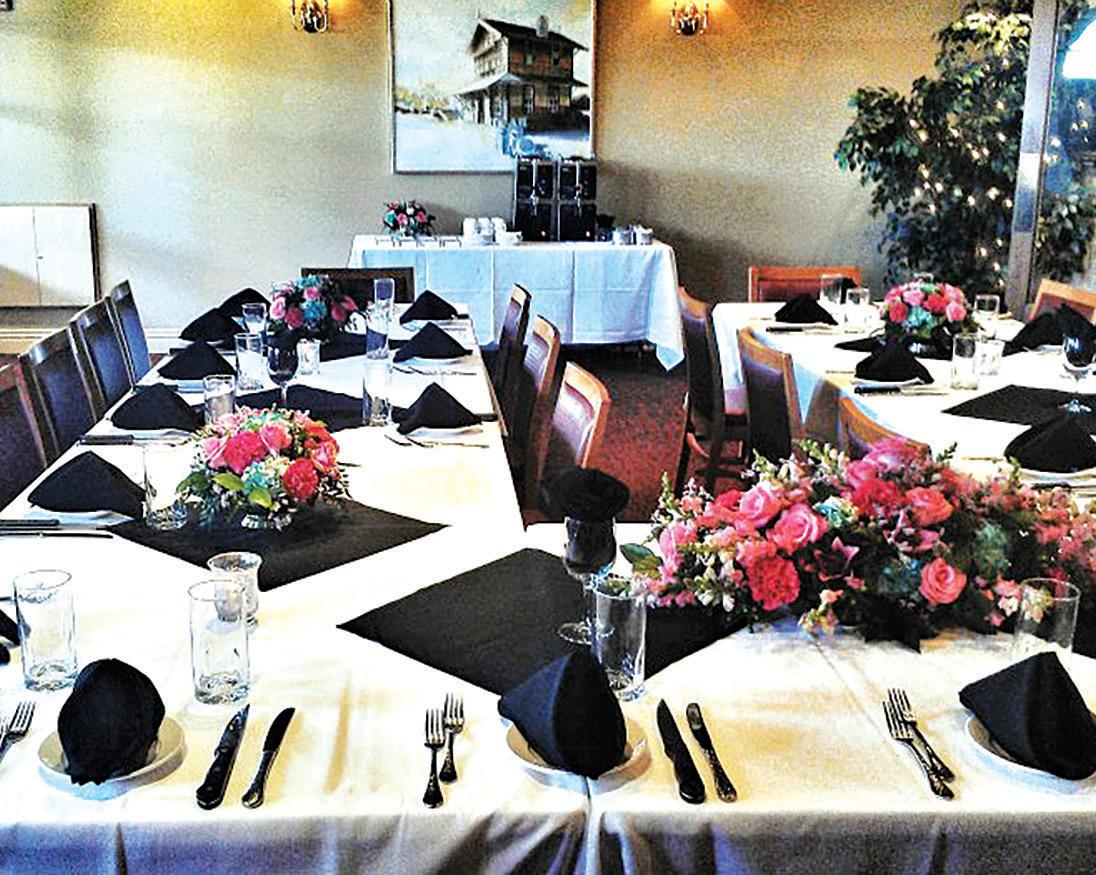
than others. Identifying how much food to have and the type of service desired can help pinpoint caterers to interview.
Having a specific chef or cuisine in mind may require separating the food from a venue. Reception centers likely will not allow couples to bring in their own food. Therefore, you will have to find a venue where outside food is possible. Then you can work with a favorite chef for catering services.
Some couples prefer to combine their ceremony and reception at one spot. This may be at a beachside location or in a converted country barn. If this seems like a scenario you are considering, then the venue will take priority and you’ll have to find an outside caterer to service the wedding.
Food allergies and intolerances are on the minds of many nowadays. Be mindful of food restrictions when speaking with caterers. Take careful inventory of work-arounds so that every guest at the wedding can be enjoy a safe, delicious meal. – Metro
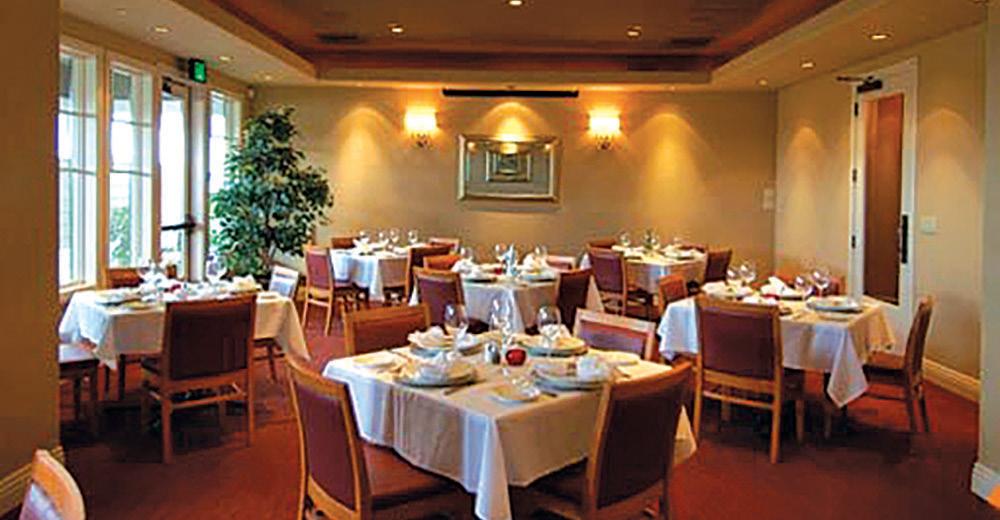

From showing up on time to celebrating with courtesy, a few essential tips from experts can help guests honor the couple and enjoy the day.
Simple tips for being a good wedding guest include:
♦ Keep picture time to a minimum for the bride and groom
♦ Always RSVP
♦ Do not bring uninvited guests
♦ Keep speeches to a time limit (3 to 4 minutes)
♦ Mandatory to give a gift with the exception of destination weddings
♦ Guests should never wear white
♦ Always follow the dress code Raman Bains, owner of Brownstone
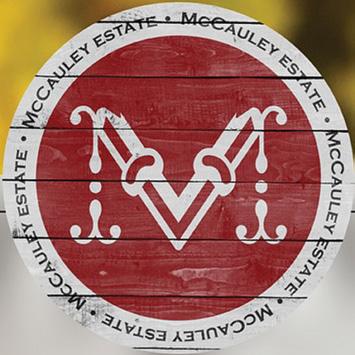
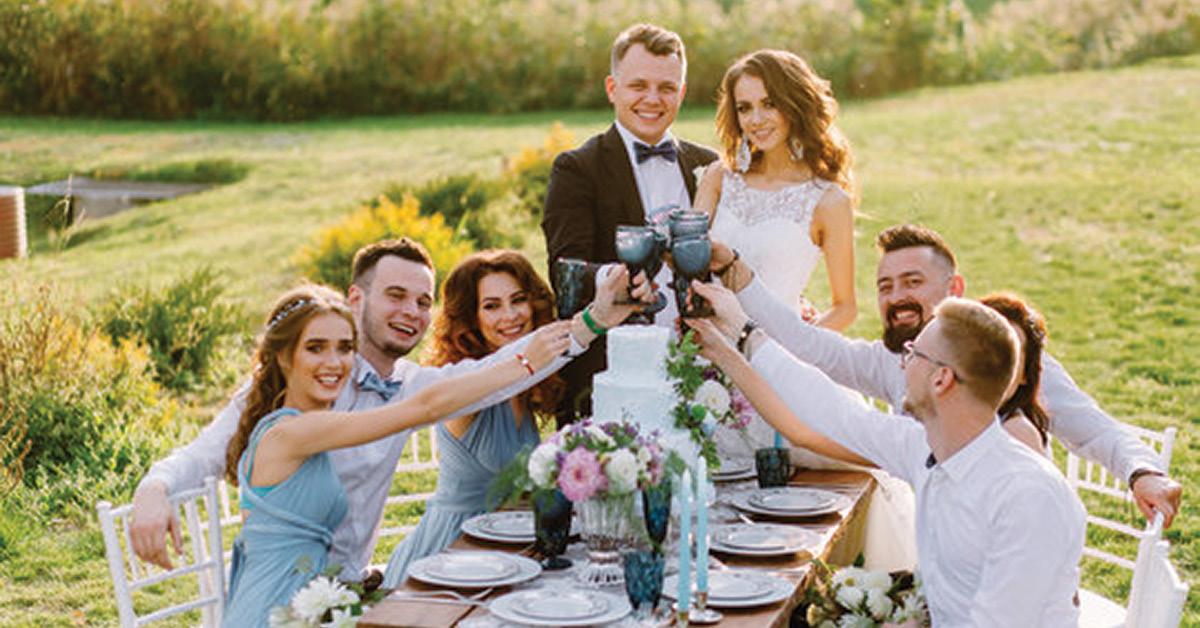
Gardens, 91 Brownstone Road in Oakley, said it is important to be considerate. “A good guest is someone who arrives on time, enjoys what has been done for the event vs. complaining about it being too
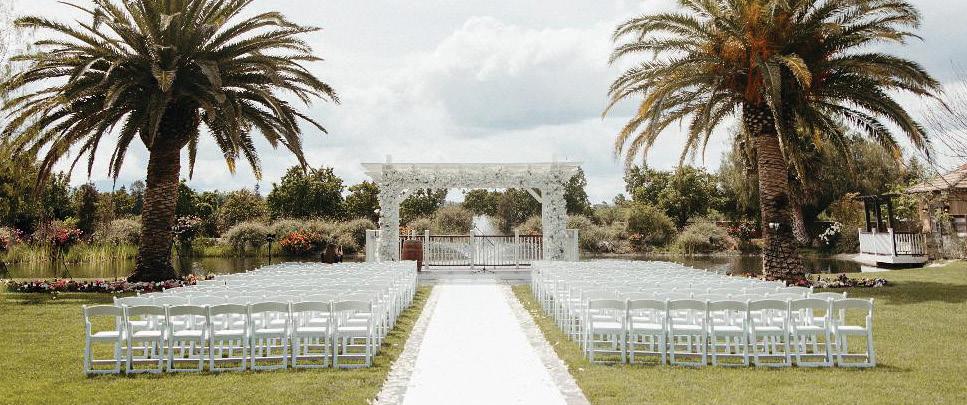
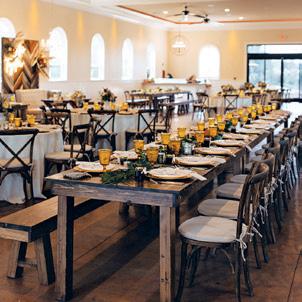



hot or too cold, the lack of appetizers to choose from or a line at the bar,” Bains said. “A good guest truly enjoys the day with the couple.”
Bains added that a good guest responds to an invitation. “A good guest does not leave the couple guessing.”
According to TheKnot.com, “Of the percentage of wedding guests who RSVP ‘yes’ to a wedding, you can expect about 3–5% as no-shows. This is different from the percentage of guests you can expect to RSVP ‘no’ —it strictly refers to guests who RSVP ‘yes,’ but do not attend.”


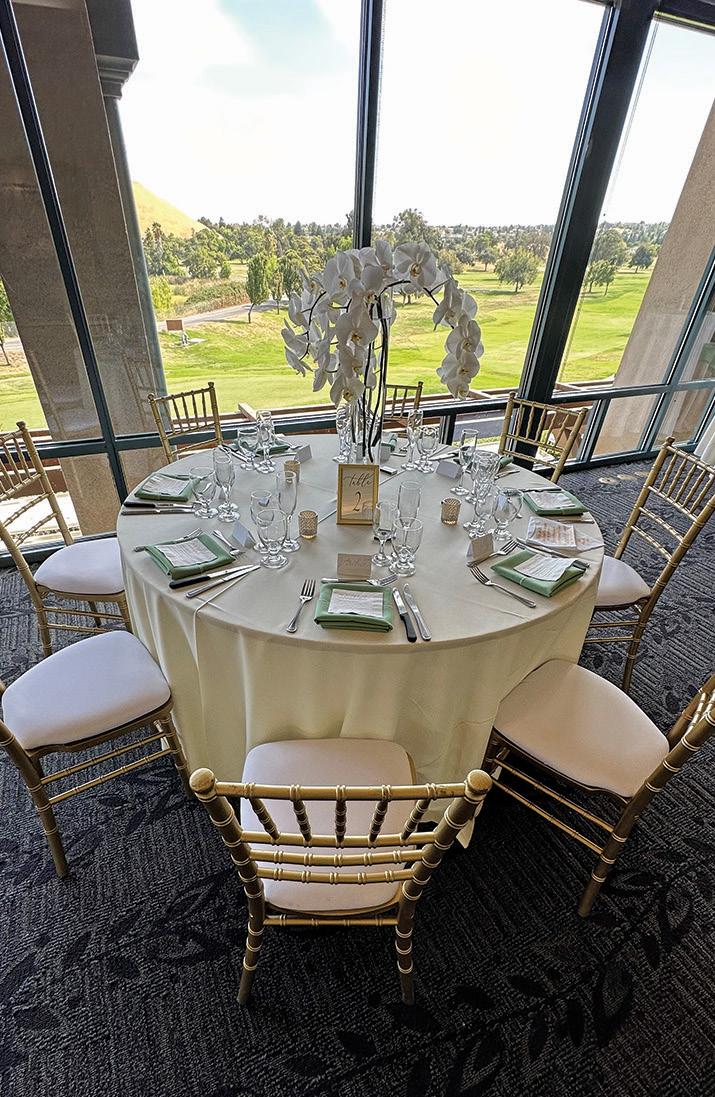
Keep picture time to a minimum for the bride and groom, RSVP, do not bring uninvited guests, keep speeches to a time limit, mandatory to give a gift with the exception of destination weddings and always follow the dress code to be a good wedding guest.
Also according to TheKnot.com, “33 percent of respondents said they either would, or have, brought an uninvited plus-one to a wedding and this number increases to 45 percent for those aged 18 to 24.”
For more information, visit TheKnot.com. Destination weddings can be a great experience for the couple and guests. However, “The financial commitment may be an issue for some guests,” said Bains regarding the challenges of destination weddings.
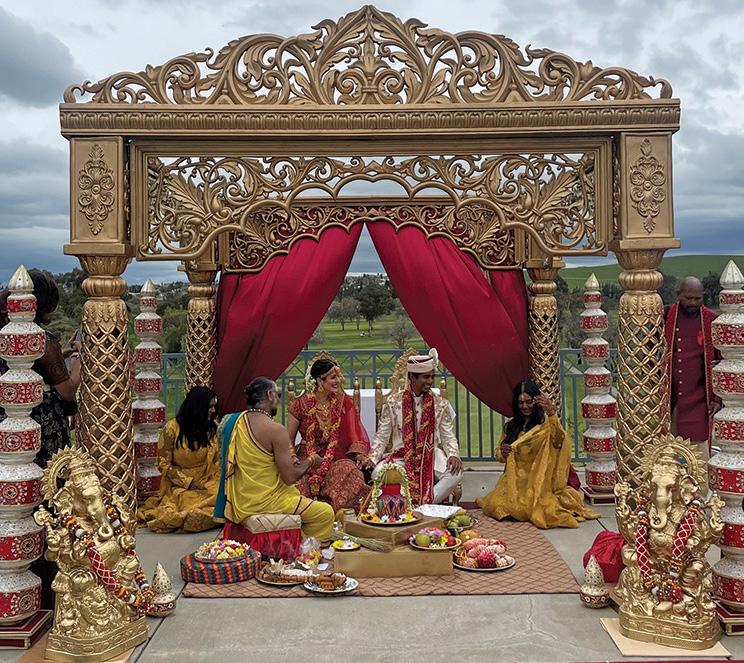
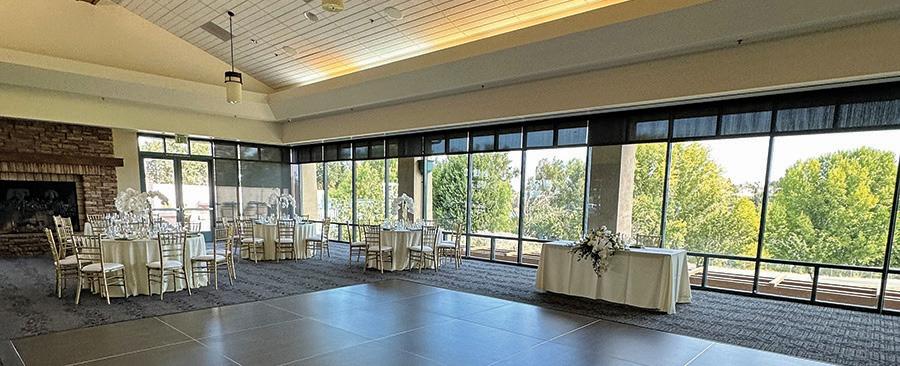
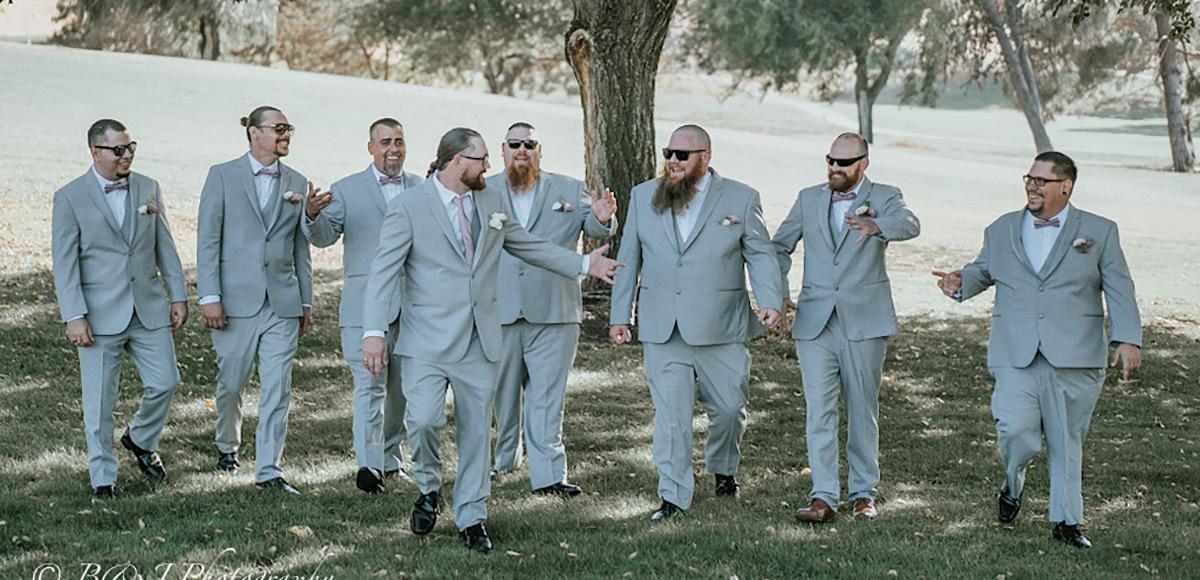
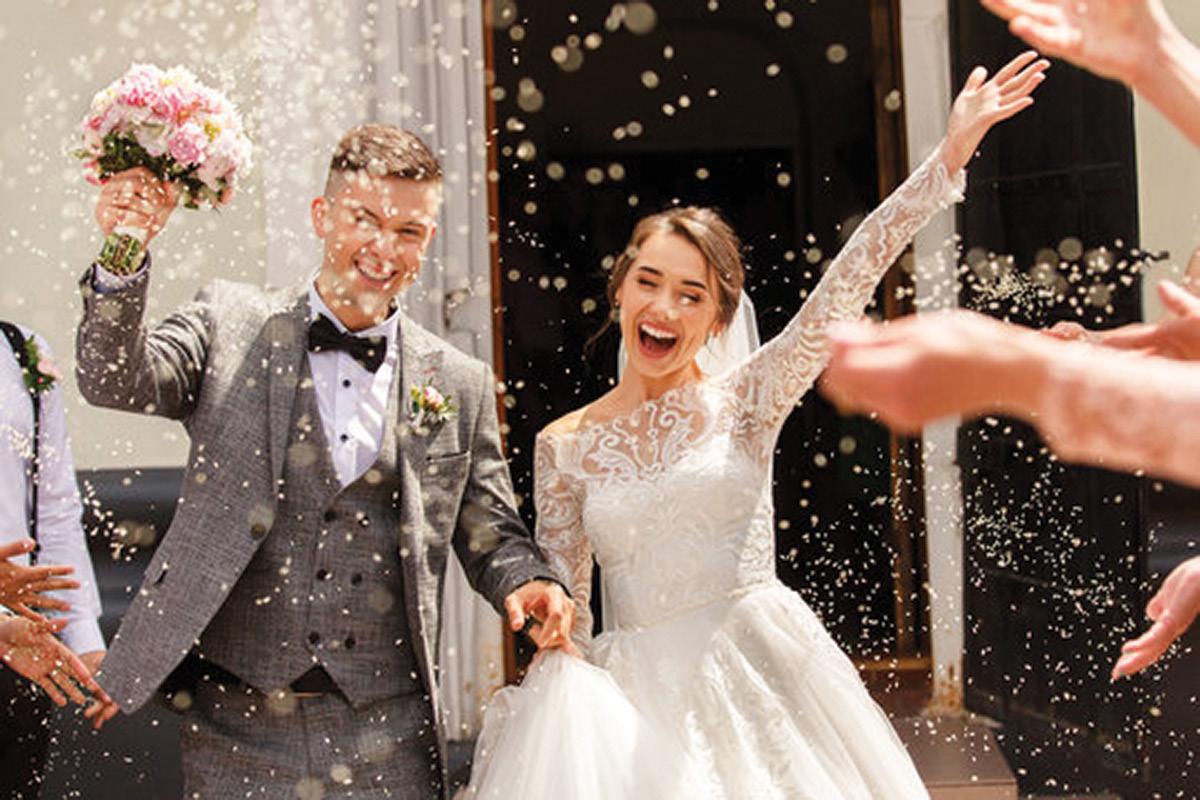
Weddings are a special day for the couple, but it is also a celebration for the guests. Being a thoughtful host can make all the difference.
Experts offer some tips for being a good host:
♦ Enjoy the day
♦ Think about the guest experience
♦ Communication
According to LizCourtneyphoto. com, “The ‘30-5 minute rule’ in wedding planning is a time management strategy in which the hosts add a 30-minute buffer to any task that they think will take five minutes on a typical day.”
This rule helps reduce stress, improves guest experience, allows for spontaneous moments and keeps vendors happy.
For more information on this rule, visit http://bit ly/4n473Xf
Raman Bains, owner of Brownstone Gardens, 91 Brownstone Road in Oakley, said a good host considers not only how they want the day to go, but how the day will be for their guests. “Considering shade, fans, other items for sun protection for a ceremony for example ample water stations or a pre-ceremony drink or snack
for a longer day,” Bains said.
Bains added that a good host thinks through each element from their guest perspective. “All of the touch points for guests from getting to the venue, the parking and the event itself do matter.”
A good host communicates with their guests prior to an event so guests can be prepared.
“Letting guests know the expectation for the day, clear communication for not only the time of the event, but details on the best attire, best shoes for an outdoor venue or a shall or other coverings and considerations for a religious ceremony perhaps,” Bains said.
Bains noted the importance of a good host having fun at their event.
“Although everyone wants a ‘perfect day’, a good host is able to step away from the stress of planning to be in the moment with their guests and enjoy the event to the fullest.”
Destination weddings can be challenging for the couple.
“Planning from a distance, the amount of items a couple may have to take with them to a location and the amount of vendors a couple may have to find,” Bains said. “A destination wedding planner is absolutely an investment that is needed if a couple is considering a destination wedding.”









































































































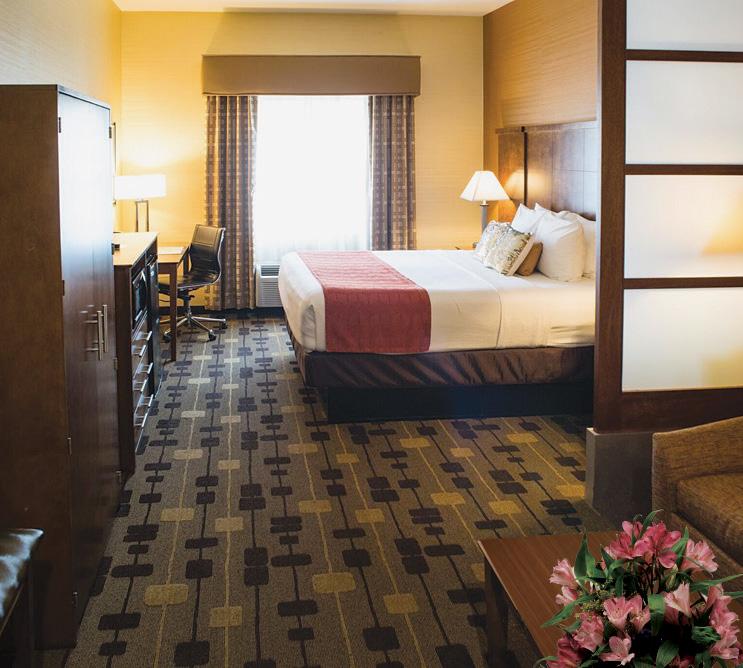
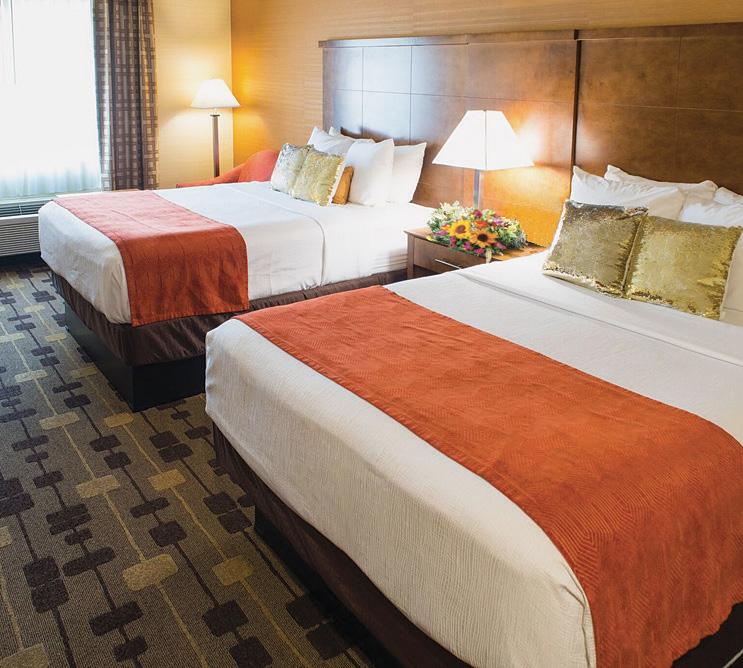
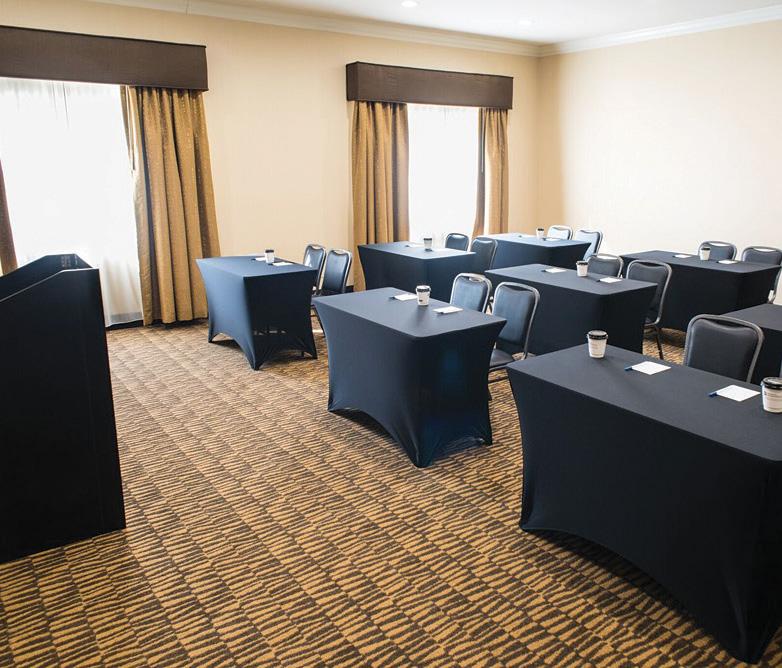
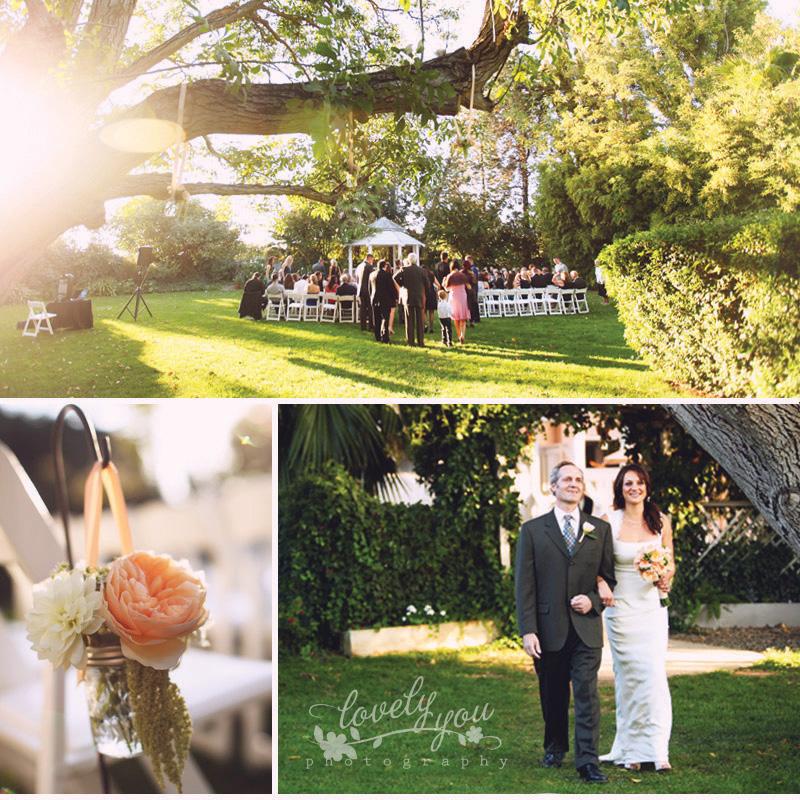
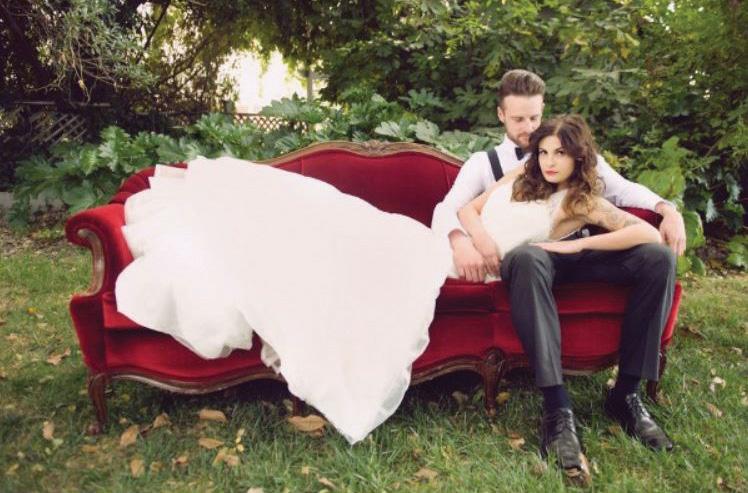

The Ryde Hotel features full-service, affordable packages that take the stress out of your wedding day. From our dramatic indoor and lush outdoor facilities, flexible menu selection and full bar service, to our 225’ private boat dock along the Sacramento River, swimming pool and overnight accommodations, our professional staff can provide you and your guests with the experience of a lifetime.
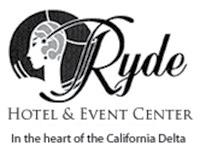
WANT TO LEARN MORE? Call us: 916 776-1318 or info@rydehotel.com Go to our web site & take the tour! www.rydehotel.com

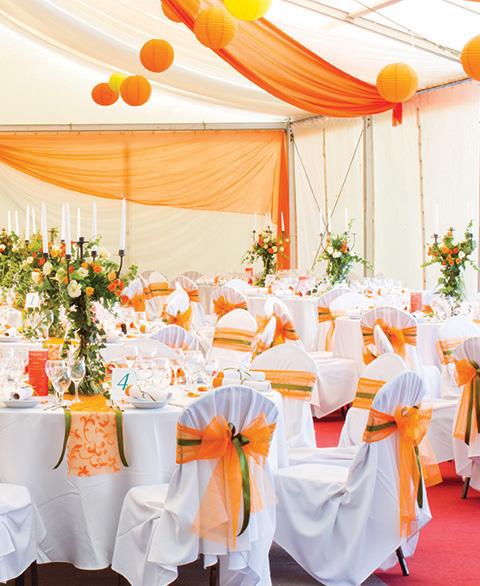

Couples can bring cash along and enlist a bridal party member or parent to take care of tipping the wedding vendors, including the bride’s hairstylist, who helped to make their special day memorable.

Florists, photographers, musicians, emcees, limousine drivers, hairstylists, caterers, and waitstaff are just some of the professionals couples will meet and rely on for their weddings. Each of these vendors will ply their trades in the hopes of contributing to a day couples will remember forever.
from a gratuity.
♦ Be prepared to offer something to an officiant. Members of the clergy may not be allowed to accept tips, but a donation made to a house of worship often is customary. A civil officiant is prohibited by law from accepting a gratuity in the United States, so keep that in mind if getting hitched at city hall.
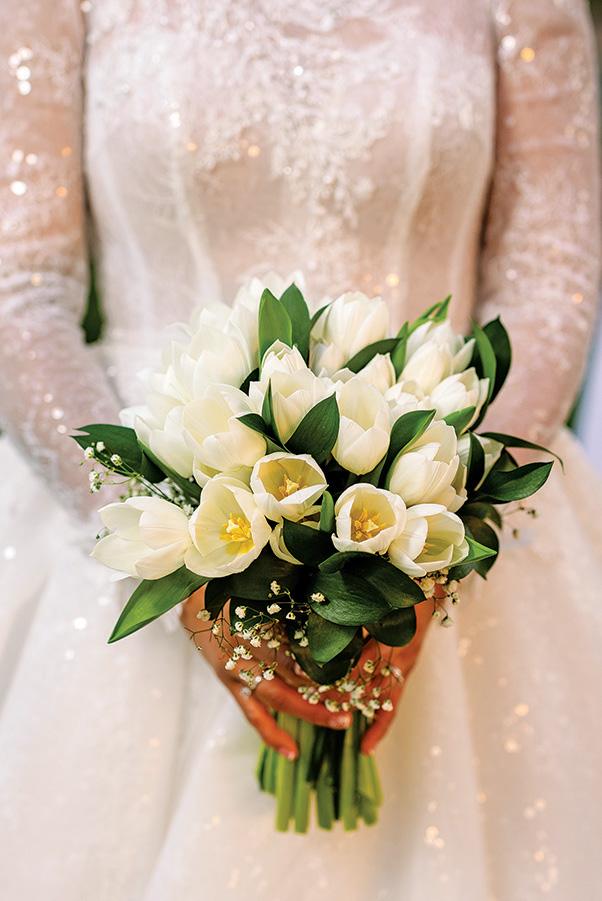
Contact PETALS today to schedule a free wedding consultation with our experienced designers. Whether you’re planning an elaborate wedding or an intimate party at home, our talented designers are here to curate floral arrangements that complement your vision and style.
Vendors charge a certain fee for their services, but couples may wonder if they should offer tips as well. When is it appropriate to tip wedding staff and at what rate?
A tip is never required but is always appreciated. That’s why couples can build tips into their wedding budgets to thank vendors for the various services they provide. Here are some additional guidelines.
♦ Familiarize yourself with the contract and determine if the agreement already includes a built-in gratuity. A service fee is different
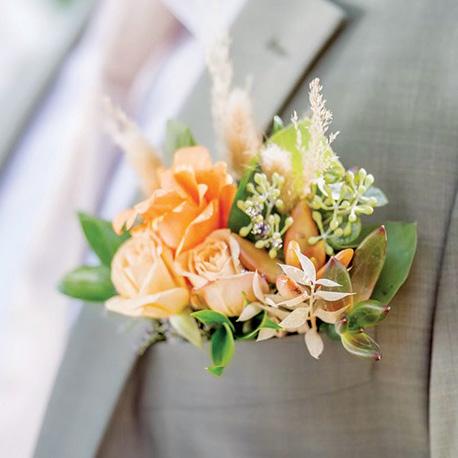
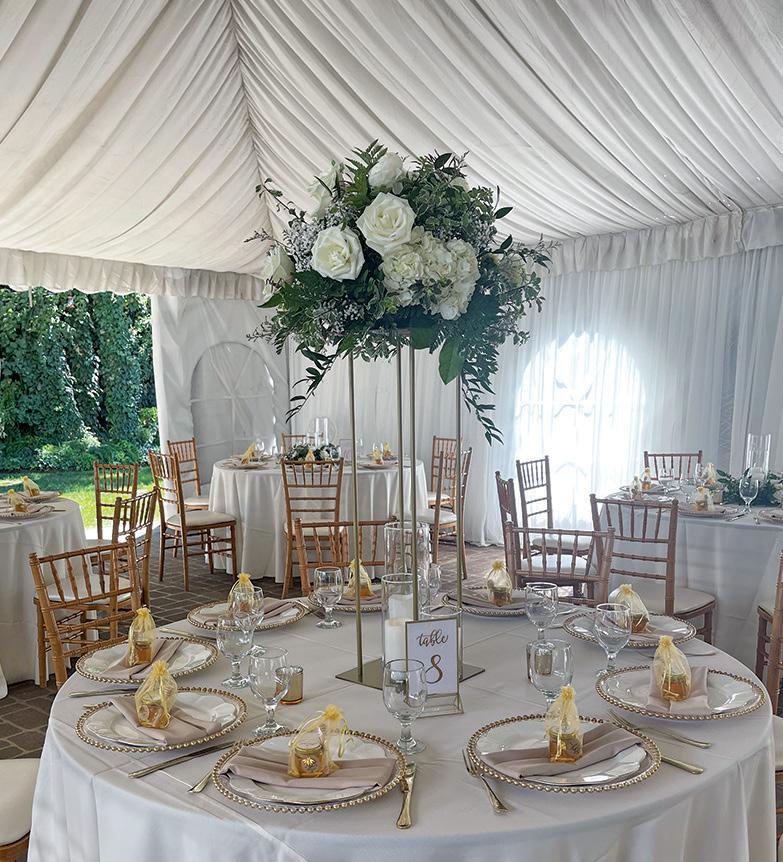
♦ Wedding planners, hairstylists, makeup artists, and catering bartenders and waitstaff can be tipped 15 to 20 percent of the total fee charged, as can a transportation company.
♦ Consider offering a predetermined gratuity for a photographer, videographer or florist. In the past, these small business owners weren’t customarily tipped, but a cash tip always is appreciated. Fifty to $200 is a standard tip.
♦ Think about tipping parking attendants anywhere from $1 to $5 the number of cars at the reception.
♦ Use your discretion when tipping musicians. Generally between $25 and $50 per musician and setup staff is an adequate gratuity.


Planning a successful wedding is a multi-layered undertaking that often stretches across many months. There are dozens of decisions to make and often thousands of dollars involved in what culminates in one day of celebration. There are many components of wedding planning, and tasks may range from entirely enjoyable to tedious. Organizing a wedding reception seating chart tends to be more the latter than the former. In fact, the wedding resource Table Top Planner identifies arranging seating plans as the most stressful part of planning a wedding.
What seems like a relatively simple concept - giving guests a seat at the party - frequently turns into a stressful situation for couples when they begin to consider all of the personalities invited to the wedding.
A wedding brings together close family, distant family, friends, coworkers, parents’ acquaintances, and others. These are people who may not interact on a regular basis, and plenty who have never met. Throw in the added mix of people who are divorced, estranged or may not see eye-to-eye on hot-button topics, and the challenge escalates.
Arranging guests at tables where they will spend four to five hours together takes some effort, but it is possible. Follow these guidelines to make the process a little less cumbersome.
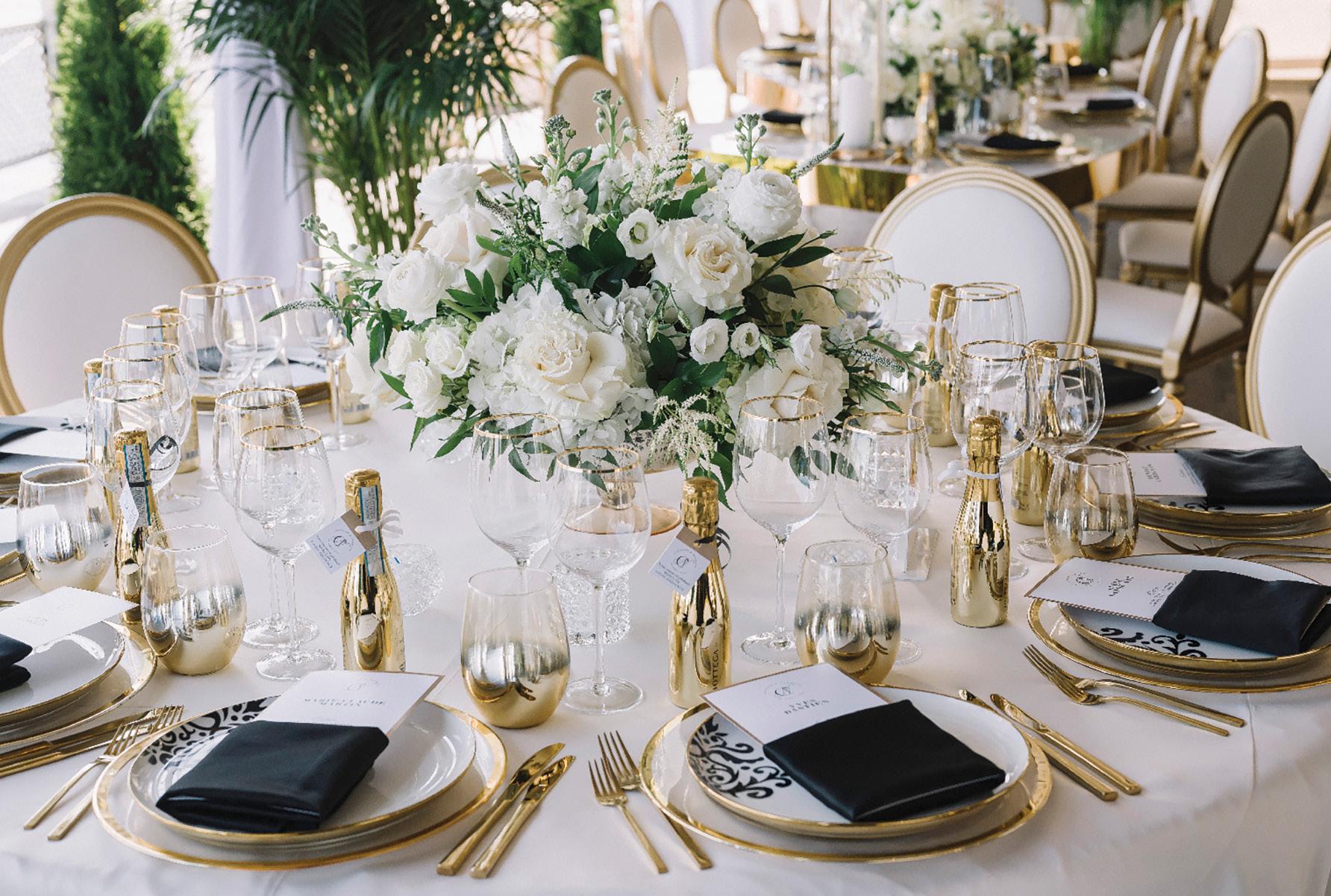
Arranging tables and seating for a reception is challenging. But with some trial and error, couples can find spots that will please most of their guests.
1. Understand the venue layout and their seating requirements. A catering manager or venue representative can provide a blueprint of how the room can be laid out and the maximum number of tables. Round tables generally are the norm at weddings because they encourage conversation and foster a more intimate atmosphere. Round tables often seat six to 10 people.
Unique, artfully arranged florals for your bouquets, ceremony and reception.
Call today to arrange your complimentary consultation!
We’d love to hear about your vision for your wedding day, and offer our suggestions for bringing that vision into bloom.
2. Avoid skipping the seating chart for larger affairs. Couples hosting a smaller wedding may be able to forgo a seating chart. But most wedding etiquette experts advise a chart for weddings with 50 or more guests. You’ll want to save guests the stress of trying to find a seat on their own, which can lead to feelings of discomfort. Plus, having a seating chart and set table numbers facilitates organization.
3. Finalize the guest list. It may be tempting to get started on the seating chart right away, but you’ll need the final guest list before beginning. Afterwards, take time to group guests based on how you know them, such as family, school friends, neighbors, and coworkers. Finding commonality can make it easier to see who might be able to sit together.
4. Blur the lines of “sides.”
Sometimes it seems like separating your family and friends into sides is the way to go. Your future spouse’s parents and friends are on one side of the room and yours are on the other. But by blending certain guests, the seating chart may fall into place.
5. Resist the urge for wedding day matchups. Skip the idea of a singles table where unattached friends are seated in hopes they might make a match.
6. Ask for help. Involve parents in the process, particularly with assistance in seating people they know personally and with whom you may be unfamiliar.
7. List the seating chart alphabetically. Place the seating chart at the entrance to the reception space. You can be as creative as you’d like with the design, but just be sure to list each person’s name in alphabetical order so it is easy to find the table assignment.


Scents Florist 3513 Main Street, Oakley • 925-625-5550 www.GoodScentsFlorist.com
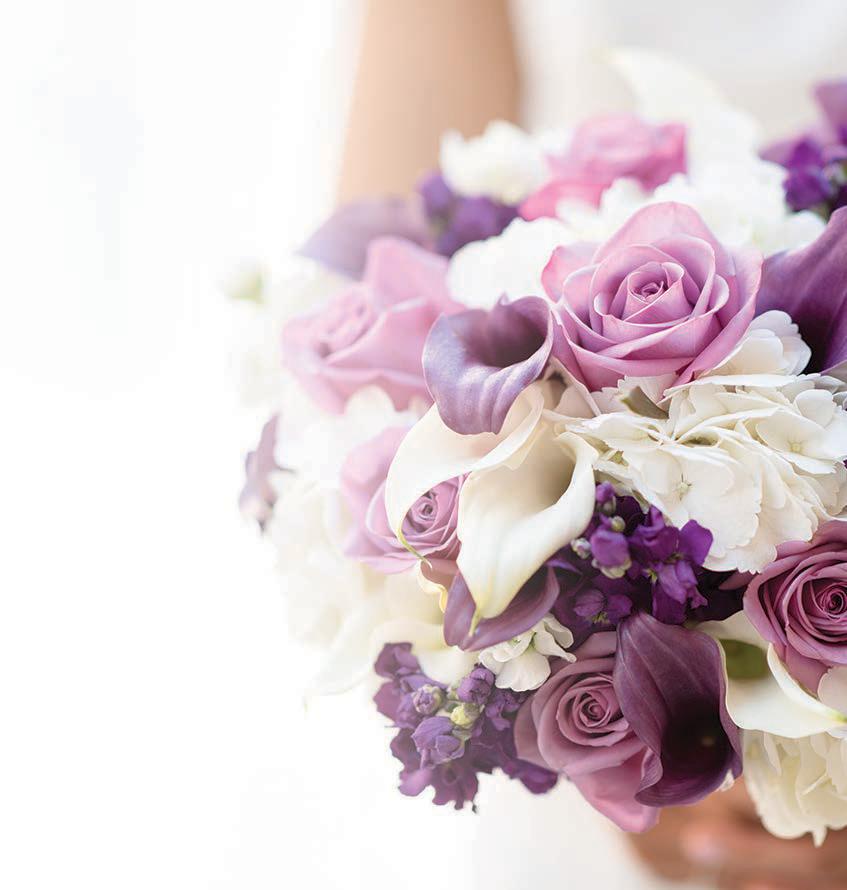


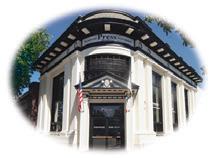


Wedding planning requires coordinating a laundry list of details that ultimately come together to make for a memorable ceremony and reception.
Couples tying the knot have their work cut out for them, and one of the biggest decisions they will have to make involves choosing where to hold the ceremony and reception. Religious couples often opt for ceremonies at their churches, synagogues and mosques. Secular weddings can occur just about anywhere, with couples sometimes using ceremony spaces adjacent to their reception rooms.
As brides and grooms narrow down their venue options, they may want to give strong consideration to the benefits that sticking close to home can offer. Certainly there are advantages to hosting a wedding at venues many miles away or even in international locations, but there are unique perks to keeping festivities local. The Knot 2025 Real Weddings Study indicated six in 10 couples chose to get married in a place where they currently live; 23 percent opted for a hometown venue; and 18 percent decided on a destination wedding. Here’s a look at some of the perks of staying local.
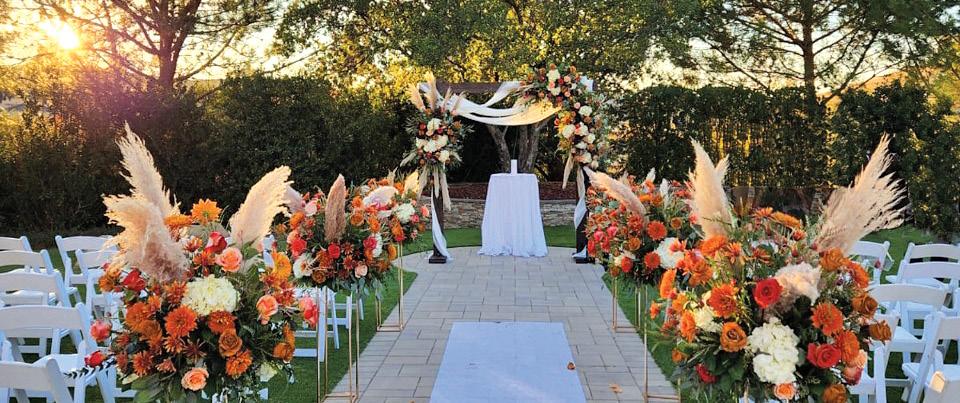
♦ Convenience: One of the biggest benefits of a local venue is convenience for both the couple and their guests. Local venues tend to be easily accessible for those who live nearby, minimizing travel time and reducing any barriers brought on by a lack of familiarity with distant locales.
♦ Familiarity: Couples who love their hometowns and close environs may want to get married in. a familiar and comfortable atmosphere. Plus, they may already be familiar with venues in the area and what they offer.
♦ Expertise: Venue staff likely live in the area or are familiar with other services close by. They can offer valuable recommendations and insights on other vendors, including what has worked before and what to avoid.
♦ Familiarity with clergy: Couples who get married in a local house of worship likely know the religious leaders there and any support staff. This can add a particularly personal component to the ceremony.
♦ Easy payments: Many venues require some sort of payment plan that consists of a deposit at the time of booking and a series of payments culminating with the last installment upon learning the final head count. Choosing a local venue makes it easy to stop at the reception site in person and provide such payments with ease, while getting confirmation and receipts in real time.
♦ Reduce delivery fees: If florists and other vendors have to drop off items, they may not charge the same delivery fees if the reception site is close by.
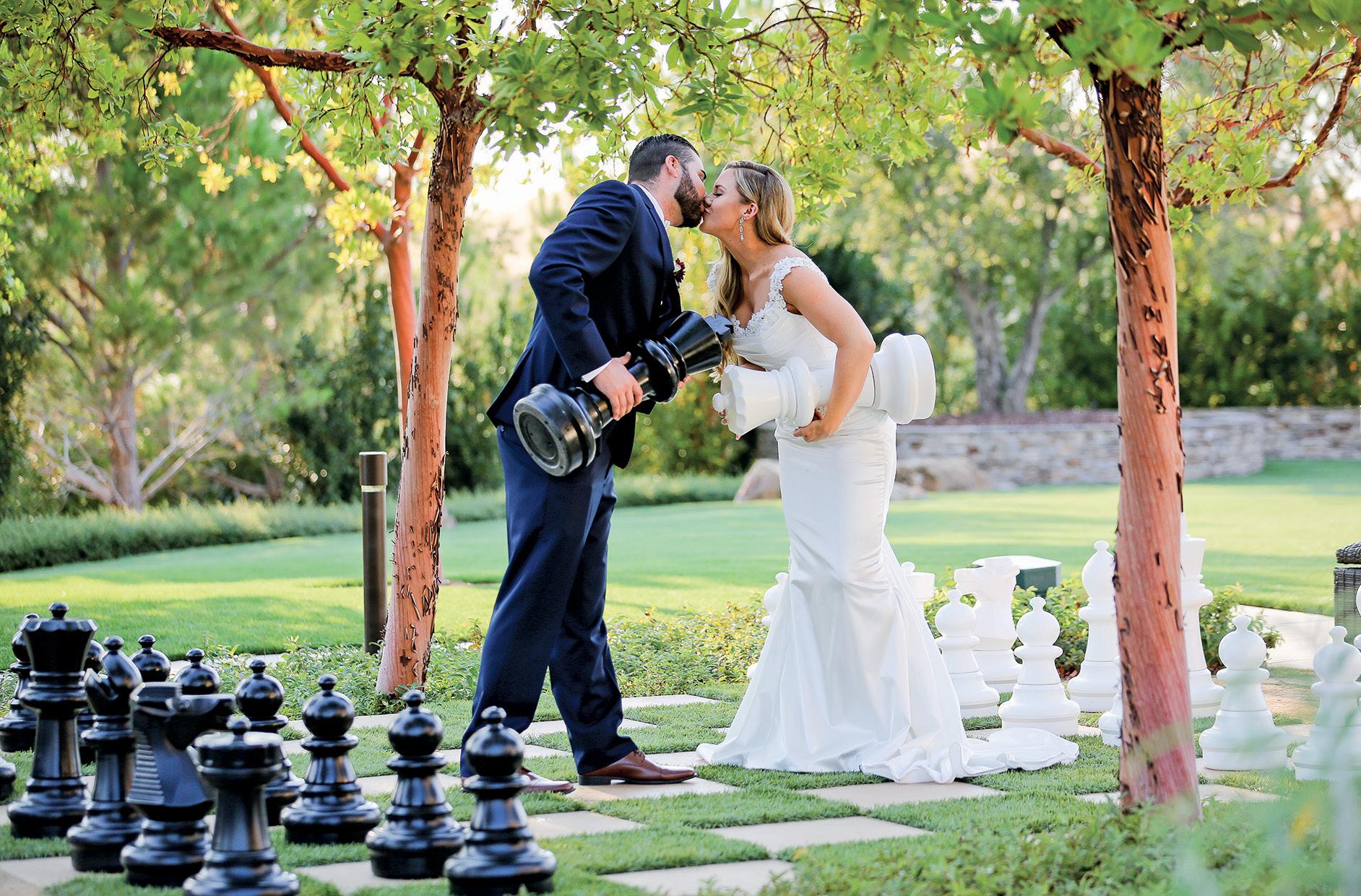
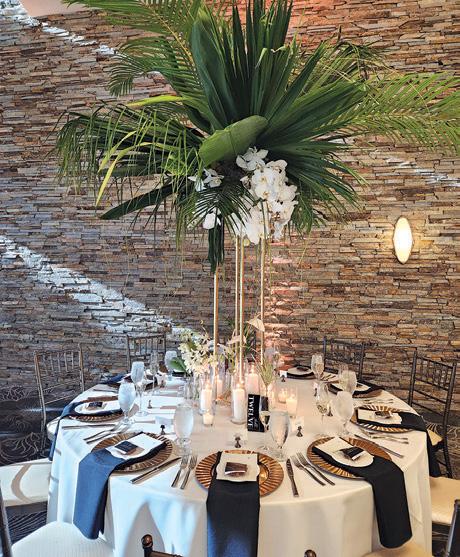
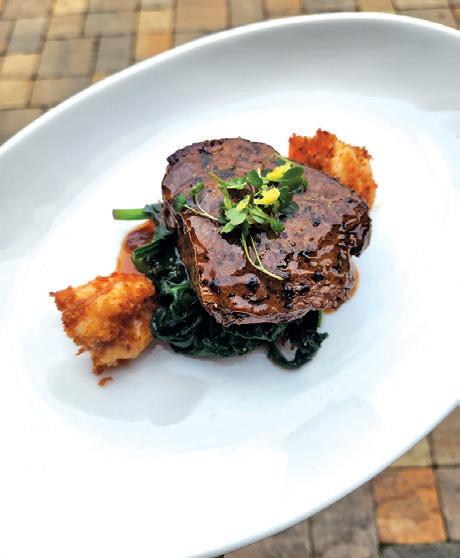
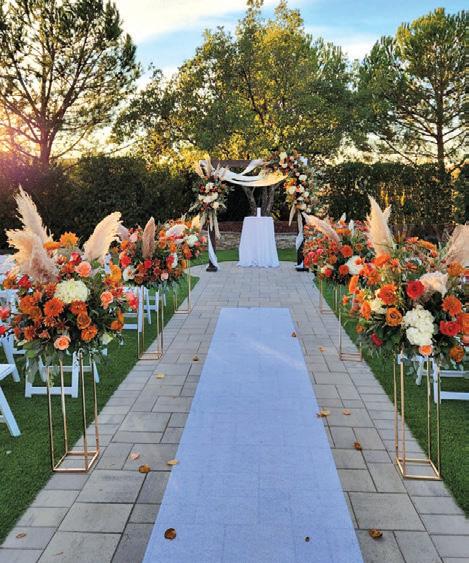
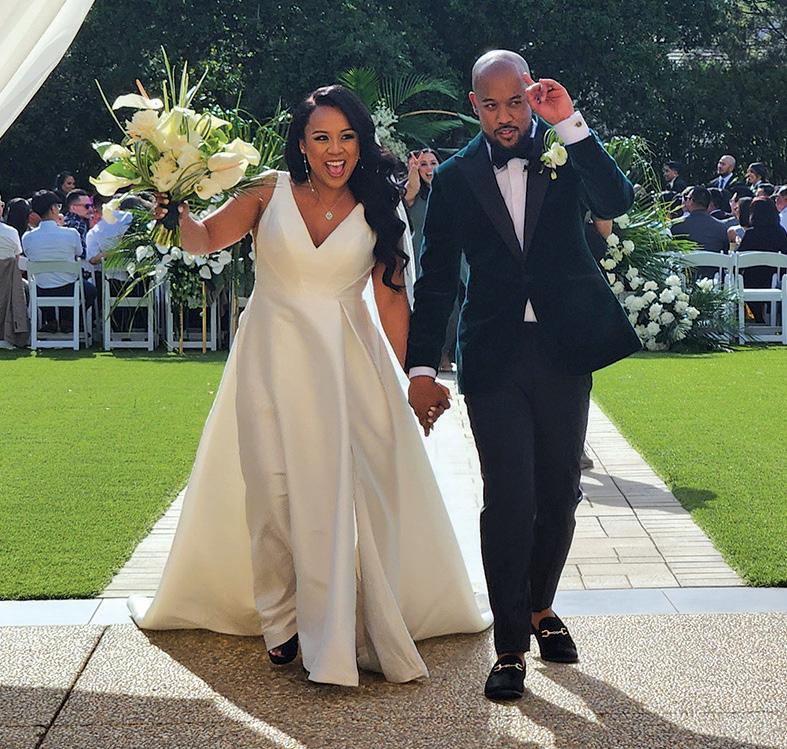
♦ Ease returning home: Chances are the couple will arrive at the ceremony and reception by hired car. Once the wedding is over, they’ll have to find transportation back home, especially if there is a gap in time before departing on a honeymoon. Using a local venue can make it easier to get home.
♦ Support of local businesses: Choosing a local venue keeps dollars in couples’ own communities, which is a great way to support businesses in the town and the people that work for them.
Local wedding venues include:
• Lone Tree Golf & Event Center, 4800 Golf Course Road, Antioch, www.lonetreegolfcourse com, 925-706-4220
• Club Los Meganos, 1700 Trilogy Parkway, Brentwood, www.mytrilogylife com, 925-809-7188
• Brentwood Rise by Wedgewood Wedding, 100 Summerset Drive, (925) 856-5898, www wedgewoodweddings com
• Palm Tree Weddings & Events, 100 Summerset Drive, (925) 505-1590
• La Grande Estates – Weddings & Fine Events Venue, 1799 Carpenter Road, Oakley, (925) 435-7334, www lagrandeweddings com
• McCauley Estate Vineyards, 2525 Sunset Road, Brentwood, (925) 516-3300, www.mccauleyestatevineyards com
– Courtesy Metro Creative
Perfectly suited to accommodate magnificent large celebrations as well as unforgettable intimate events with a variety of indoor and outdoor spaces.
